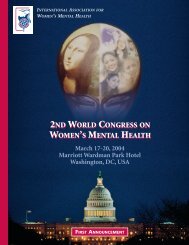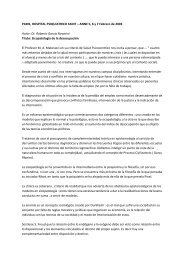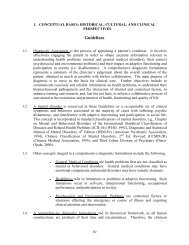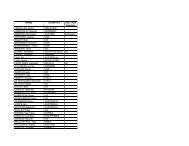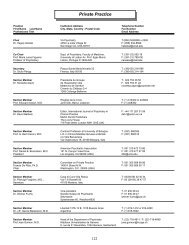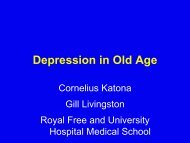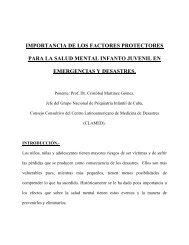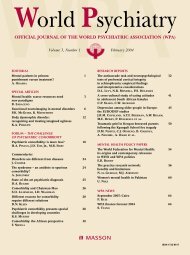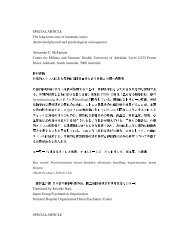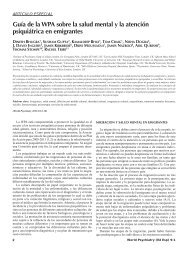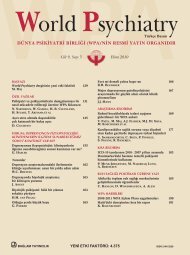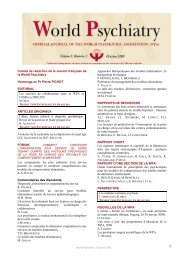the mass media and their relationship with the postmodern culture
the mass media and their relationship with the postmodern culture
the mass media and their relationship with the postmodern culture
Create successful ePaper yourself
Turn your PDF publications into a flip-book with our unique Google optimized e-Paper software.
eproduction allow us to enjoy <strong>and</strong> distribute good books <strong>mass</strong>ively,reproduct good paintings <strong>mass</strong>ively, "canning"good music, <strong>and</strong> run goodmovies before millions of movigoers. However, this world has alsodiscovered <strong>the</strong>re were huge benefits in producing artistic narcotics,<strong>and</strong> <strong>the</strong> dream vision becomes commercialized: <strong>the</strong> poor girl marries amillionnaire, <strong>the</strong> young, humble, guy becomes a hero by vanquishing allpossible obstacles <strong>and</strong> ennemies. In o<strong>the</strong>r words, fairy tales getupdated <strong>and</strong> are launched on <strong>the</strong> market. <strong>and</strong> all this happens in a timewhen writers <strong>and</strong> artists fight against <strong>the</strong> old clichés, taking greatpains to find how to reproduce a new reality.As Thomas Mann could say: this is an unsufficient divorce: for onething <strong>the</strong>re exists <strong>the</strong> necessary search for new means apt atexpressing new realities: getting conscious that our artistic meansare exhausted, we are tired of <strong>the</strong>m, we are looking for new ways, on<strong>the</strong> one h<strong>and</strong>. On <strong>the</strong> o<strong>the</strong>r h<strong>and</strong>, we can say, <strong>with</strong> regard to human<strong>mass</strong>es that, as far as <strong>the</strong>y are concerned, <strong>the</strong> ancient art is, for<strong>the</strong>m, something absolutely new -hence <strong>the</strong>y have to learn how todistinguish between good <strong>and</strong> useless. That is <strong>the</strong>ir bon goût has notbeen configurated as yet, so <strong>the</strong>ir ability to appreciate quality isstill to be created.Art is a servant to <strong>culture</strong> unified by something else than education.That is <strong>culture</strong>, as a concept does not implies art. Any community aptat adding art adds humanity to <strong>culture</strong>.As baron Munchhausen boasted to have done, this <strong>culture</strong> must enjoy <strong>the</strong>ability to fly, <strong>and</strong> <strong>the</strong> ability to dream. That will be <strong>the</strong> only meansto perform all <strong>the</strong> "voyages" we are craving for, we will be able todeal successfully <strong>with</strong> everyday life <strong>and</strong>, eventually, we could seethat imagination has achieved power.Lyotard says that science quarrels over narrations because narrationsare, chiefly related to fables while science is not only reduced instating useful discoveries but science also works in search of truth -a way to attain philosophy. Whenever such meta-discourse resorts toany possible narration such as <strong>the</strong> dialectics of spirit, <strong>the</strong>hermeneutics of sense, <strong>the</strong> emancipation of <strong>the</strong> reasoning subject, <strong>the</strong>nwe can say that science is "modern".Giving legitimation to knowledge by means of a meta-narration impliesa philosophy of History. The validity of institutions ruling <strong>the</strong>social links is questioned.Postmodernism would represent incredulity <strong>with</strong> regard to metanarrations.The coming society is not so based on a Newtoniananthropology -i.e. structuralism, <strong>the</strong>ory of systems: it is much morebased on <strong>the</strong> practical side of linguistic particles, so knowledgechanges status, a fact that began by late 1950s jointly <strong>with</strong> <strong>the</strong>reconstruction of Europe.Phonology, linguistic <strong>the</strong>ories, communication problems, cybernetics,computer science, modern algebra, computers <strong>and</strong> <strong>the</strong>ir languages,memory problems, data bases, <strong>and</strong> telemathics witness such a trend. Theincidence of those technological transformations on knowledge issimply huge. It could be said that knowledge is affected in its mainfunctions: a) research, <strong>and</strong> b) knowledge transmission. Themultiplication of information-related machinesis affecting, <strong>and</strong> will keep affecting <strong>the</strong> dissemination of knowledge,as it has been performed <strong>with</strong> <strong>the</strong> available means for <strong>the</strong>transportation of sound <strong>and</strong> image <strong>media</strong>.



